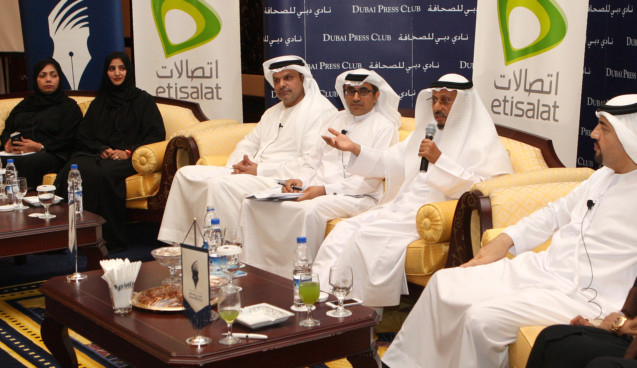
Dubai: When it comes to fatwas spread on Twitter — a recent trend that gained popularity in the region following the arrival of Ramadan — making sure of the tweet’s reliability lies on the receiver as much as it lies on the person spreading it, said Dr Ahmad Al Haddad, Dubai Grand Mufti.
During Ramadan, many users have taken to social media platforms, especially Twitter to spread fatwas based on unknown sources and without proper research.
“There is a difference between an opinion and a fatwa, opinion is sharing what you think about something however fatwa is when one says that something is Halal or Haram. Fatwas are considered to be the interpretations of God’s judgment and so should only be made by credible Shaikhs who have certain characteristics and knowledge. They cannot be made without proper studying and consultation” said Dr Al Haddad during Dubai Press’s Ramadan Majlis yesterday.
This has become an issue as statistics have shown a noticeable increase in the use of social media in the Arab region.
“Saudi Arabia is the second fastest growing country on Twitter and the Arabic language is the fastest growing language on the social media platform. Four to five million tweets coming from the Arab world are from Saudi Arabia and next in line is the UAE with 400,000 tweets. Statistics also found that 80 per cent of twitter users are below the age of 25,” said Ali Al Ahmad, Chief Corporate Communication Officer at Etisalat. “The appeal of Twitter comes from its fast reach and short content that is limited to 140 characters” he added
Due to this increase social media platforms such as Twitter are expected to have a great impact on the public opinion of the Arab world.
Al Ahmad recalled a case that proved that Twitter did in fact have a great impact on public opinion.
“One of the Fatwas recently published on Twitter was by a Saudi who said that going to Dubai is Haram. The tweet spread so fast that a well known Arabic News Channel had to conduct an interview with a Shaikh to tell the public that the Fatwa is false. Another example was when a rumour spread on Twitter that Obama had an accident. This caused stocks in the American stock market to decline sharply.”
The Majlis which was titled ‘Fatwas via twitter, a look at its content and impact’ was held yesterday at the Dubai World Trade Centre. It discussed whether social media is a suitable platform for fatwas.
Dr Al Haddad called on the public to not believe anything they read stating that the responsibility lies on them.
“I don’t blame social media platforms or the people who make these Fatwas up without any research. I blame the receiver; people should not believe anything they read blindly without checking the source. They should make sure of its credibility first and this does not only apply on fatwas but also any other information related to politics, society etc.” he added







